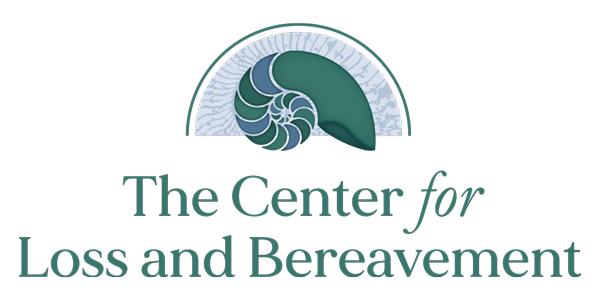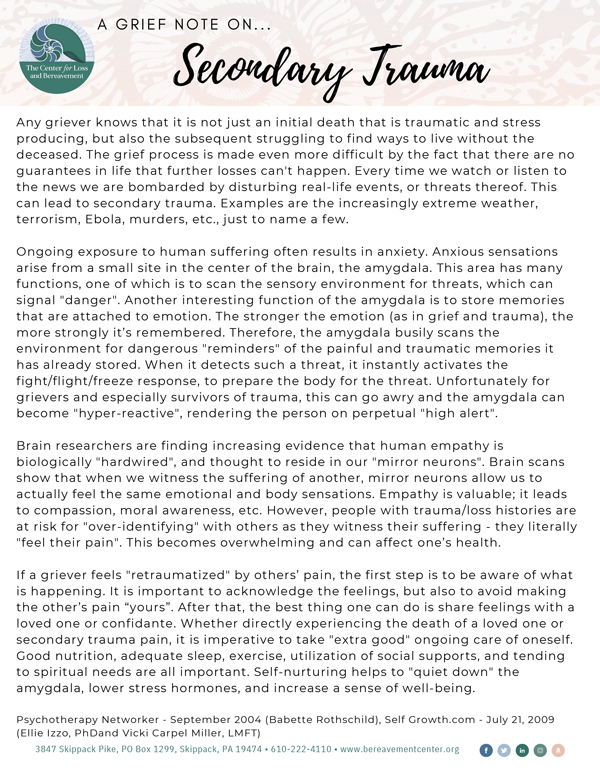CLB Grief Notes
A Grief Note On…
Secondary Trauma
Any griever knows that it is not just an initial death that is traumatic and stress producing, but also the subsequent struggling to find ways to live without the deceased. The grief process is made even more difficult by the fact that there are no guarantees in life that further losses can’t happen. Every time we watch or listen to the news we are bombarded by disturbing real-life events, or threats thereof. This can lead to secondary trauma. Examples are the increasingly extreme weather, terrorism, Ebola, murders, etc., just to name a few.
Ongoing exposure to human suffering often results in anxiety. Anxious sensations arise from a small site in the center of the brain, the amygdala. This area has many functions, one of which is to scan the sensory environment for threats, which can signal “danger”. Another interesting function of the amygdala is to store memories that are attached to emotion. The stronger the emotion (as in grief and trauma), the more strongly it’s remembered. Therefore, the amygdala busily scans the environment for dangerous “reminders” of the painful and traumatic memories it has already stored. When it detects such a threat, it instantly activates the fight/flight/freeze response, to prepare the body for the threat. Unfortunately for grievers and especially survivors of trauma, this can go awry and the amygdala can become “hyper-reactive”, rendering the person on perpetual “high alert”.
Brain researchers are finding increasing evidence that human empathy is biologically “hardwired”, and thought to reside in our “mirror neurons”. Brain scans show that when we witness the suffering of another, mirror neurons allow us to actually feel the same emotional and body sensations. Empathy is valuable; it leads to compassion, moral awareness, etc. However, people with trauma/loss histories are at risk for “over-identifying” with others as they witness their suffering – they literally “feel their pain”. This becomes overwhelming and can affect one’s health.
If a griever feels “retraumatized” by others’ pain, the first step is to be aware of what is happening. It is important to acknowledge the feelings, but also to avoid making the other’s pain “yours”. After that, the best thing one can do is share feelings with a loved one or confidante. Whether directly experiencing the death of a loved one or secondary trauma pain, it is imperative to take “extra good” ongoing care of oneself. Good nutrition, adequate sleep, exercise, utilization of social supports, and tending to spiritual needs are all important. Self-nurturing helps to “quiet down” the amygdala, lower stress hormones, and increase a sense of well-being.
Psychotherapy Networker – September 2004 (Babette Rothschild), Self Growth.com – July 21, 2009 (Ellie Izzo, PhDand Vicki Carpel Miller, LMFT)
Join Our
Mailing List
Donate
Today
Request
Information

Affiliations
• NACG
• CBEM Changemaker
• ADEC
• Charity Navigator
Quick Links
About Us
Individual & Family Grief Counseling
Volunteer
News
Grief Support Resources
Contact
Ph: 610-222-4110
Fax: 610-222-4116
3847 Skippack Pike
P.O. Box 1299
Skippack, PA 19474
Support The Center For
Loss and Bereavement
